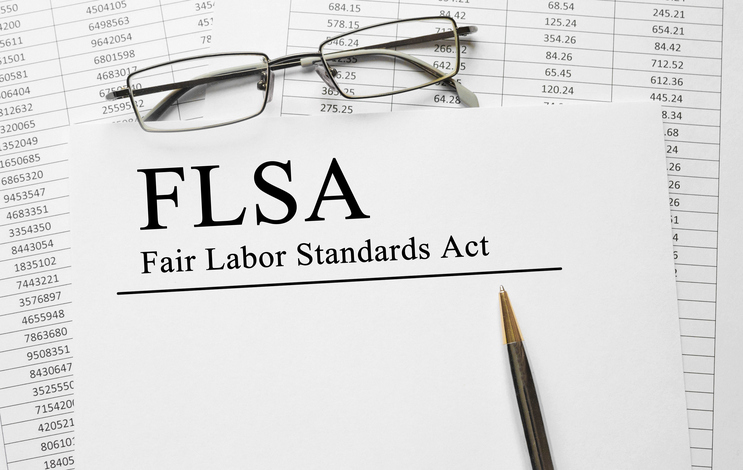Do you know which of your employees are exempt from the Fair Labor Standards Act (FLSA) overtime pay requirement? Have you recently done an exemption audit to ensure all employees who are classified as exempt still meet the requirements?

Let’s look at the primary overtime exemption categories, with a brief summary of what each one entails.
FLSA Exemptions 101
First, the “exempt” classification means that an employee who meets exemption qualifications does not have to be paid overtime, regardless of how many hours the individual works in a given workweek.
There are entire groups of employees who are not subject to the FLSA because they’re covered under their own specific labor laws, which take precedence. Payment to these employees must meet the laws they’re subject to, but they’re not additionally subject to the FLSA overtime requirements. Examples include railroad workers and truck drivers, though there are several more.
The FLSA provides for several specific categories of overtime exemptions. Each of these exemptions requires an employee to be paid on a salaried basis. An equivalent pay on an hourly basis does not meet the requirements.
The salary must be no less than $684/week ($35,568 per year), which represents a change from the previous level of $455/week. (This change went into effect at the beginning of 2020.) It’s permissible to use nondiscretionary bonuses or other incentives like commissions to meet up to 10% of the salary requirement.
In addition to the salary requirements, the employee must meet the duties requirements of the given exemption; simply meeting the salary requirement is not enough. Likewise, simply having a seemingly exempt job title or job duties is not enough; all requirements must be met.
White-Collar Exemptions
Here’s an overview of the common white-collar exemptions and what primary duty is required for them to qualify:
- Administrative exemption: The primary duty includes office or other nonmanual work, and this work must be directly related to the management or general business operations of the organization. This exemption requires the individual to exercise discretion and independent judgment on topics of significance.
- Professional exemption: There are two types: learned professional or creative professional. For learned professionals, the primary duty includes performing work that requires some type of advanced knowledge in a field of science and learning. Like the administrative exemption, this exemption requires the individual to exercise discretion and independent judgment. For creative professionals, the primary duty must include work requiring “invention, imagination, originality or talent in a recognized field of artistic or creative endeavor.”
- Outside sales exemption: The primary duty must be to obtain sales, orders, or contracts outside the employer’s regular place of business. (For more about the outside sales exemption, see this article.)
- Executive exemption: The primary duty includes managing a department or subdivision of the organization or the organization itself. This exemption requires the individual to direct the work of at least two other full-time employees or the equivalent and have the ability to hire and fire employees or significant weight in such decisions.
These categories are commonly referred to as the white-collar exemption categories. Additional white-collar exemption categories include the computer-related exemption and the highly compensated employee exemption.
We’ve singled these out separately because their pay requirements differ from the others.
- Computer-related exemption: This exemption has a carve-out that makes it possible to pay the individual either on a salary basis of at least $684/week OR on an hourly basis of at least $27.63/hour. As with the other exemptions, there are also duties requirements. See the Department of Labor (DOL) guidance on this issue for more details.
- Highly compensated individuals: A total of at least $107,432 must be paid to these individuals annually, with at least $684 of that paid weekly on a salary or fee basis. Additionally, these individuals must meet the requirements of at least one of the professional, administrative, or executive exemptions.
Bridget Miller is a business consultant with a specialized MBA in International Economics and Management, which provides a unique perspective on business challenges. She’s been working in the corporate world for over 15 years, with experience across multiple diverse departments including HR, sales, marketing, IT, commercial development, and training.
